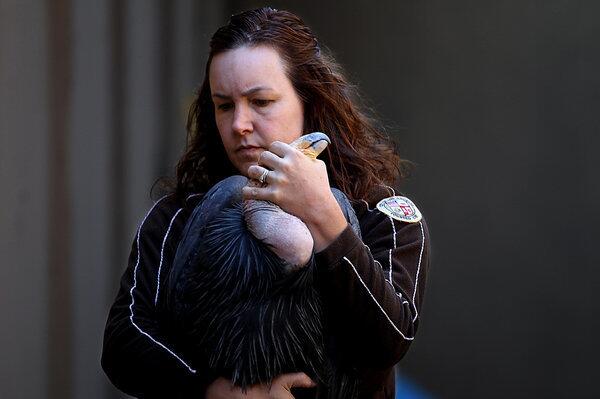Because the risk of lead exposure to California condors is so great, the wildlife biologists with the U.S. Fish and Wildlife Service trap these endangered birds twice a year for routine lead blood testing.
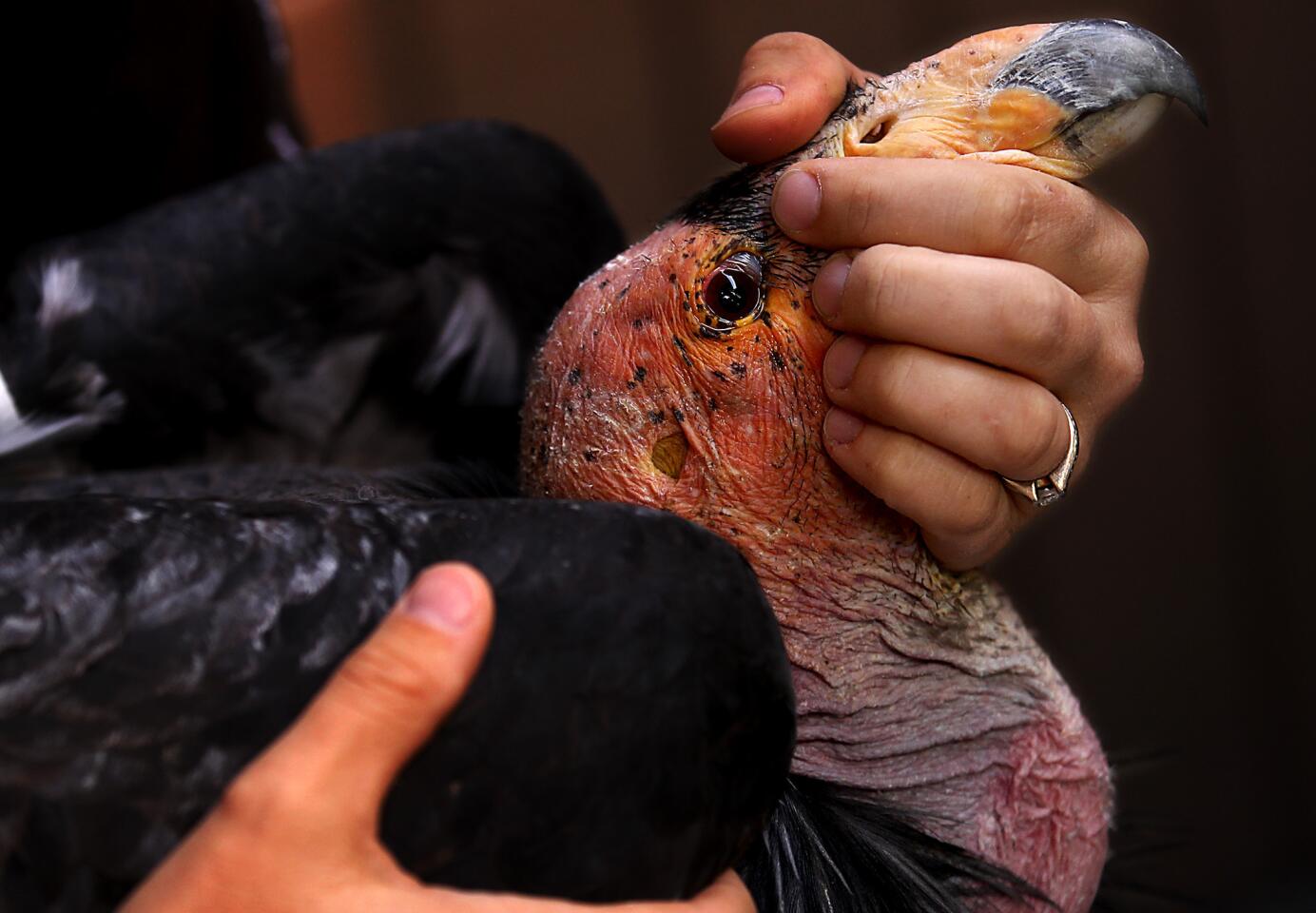
This 5-year-old female bird is currently at the zoo to be treated for lead poisoning. Zoo officials believe it was sickened after ingesting carrion contaminated by lead fragments from a hunter’s firearm. (Luis Sinco / Los Angeles Times)
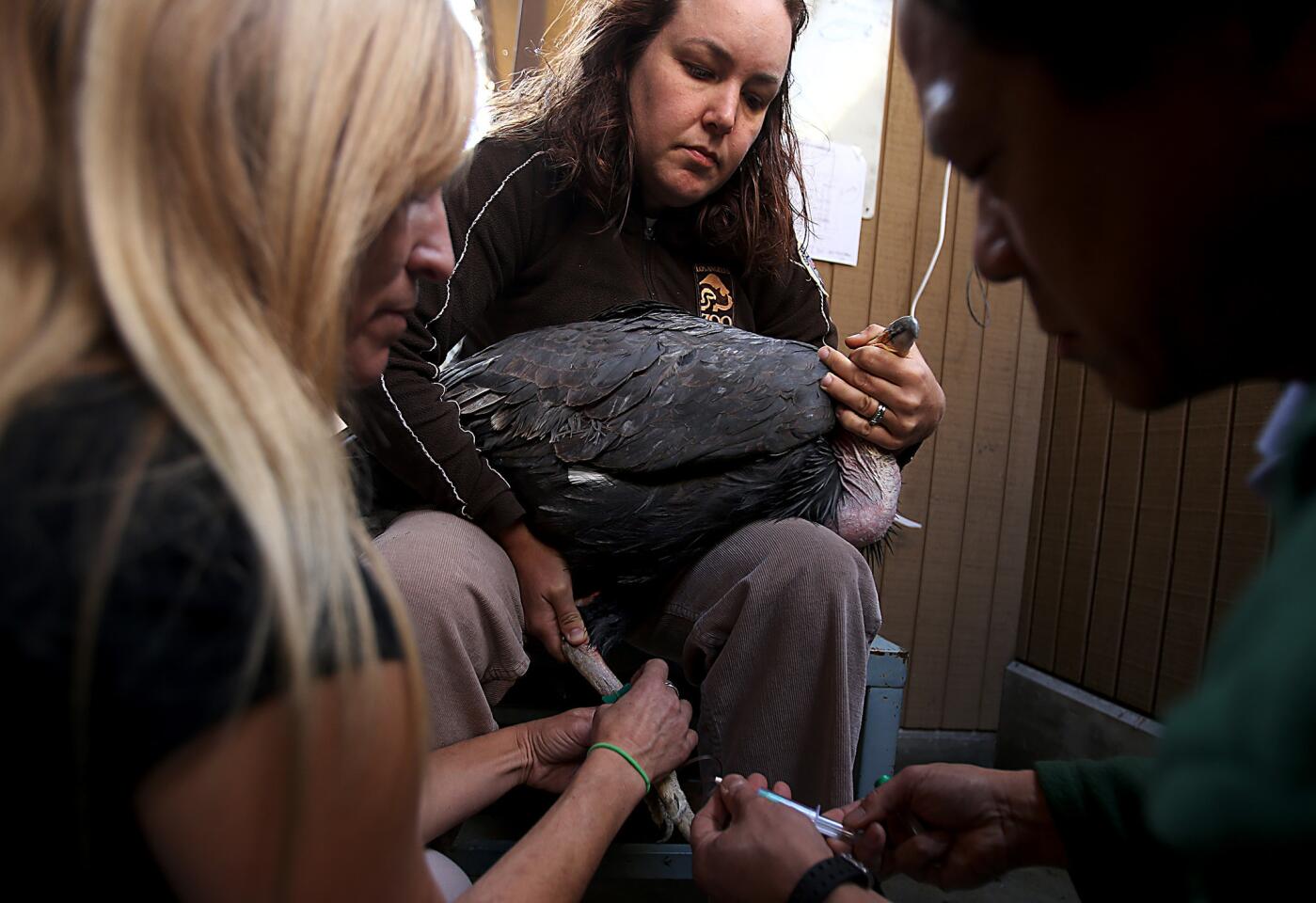
L.A. Zoo staff restrain a California condor as tests are administrated to determine the animal’s health. (Luis Sinco / Los Angeles Times)
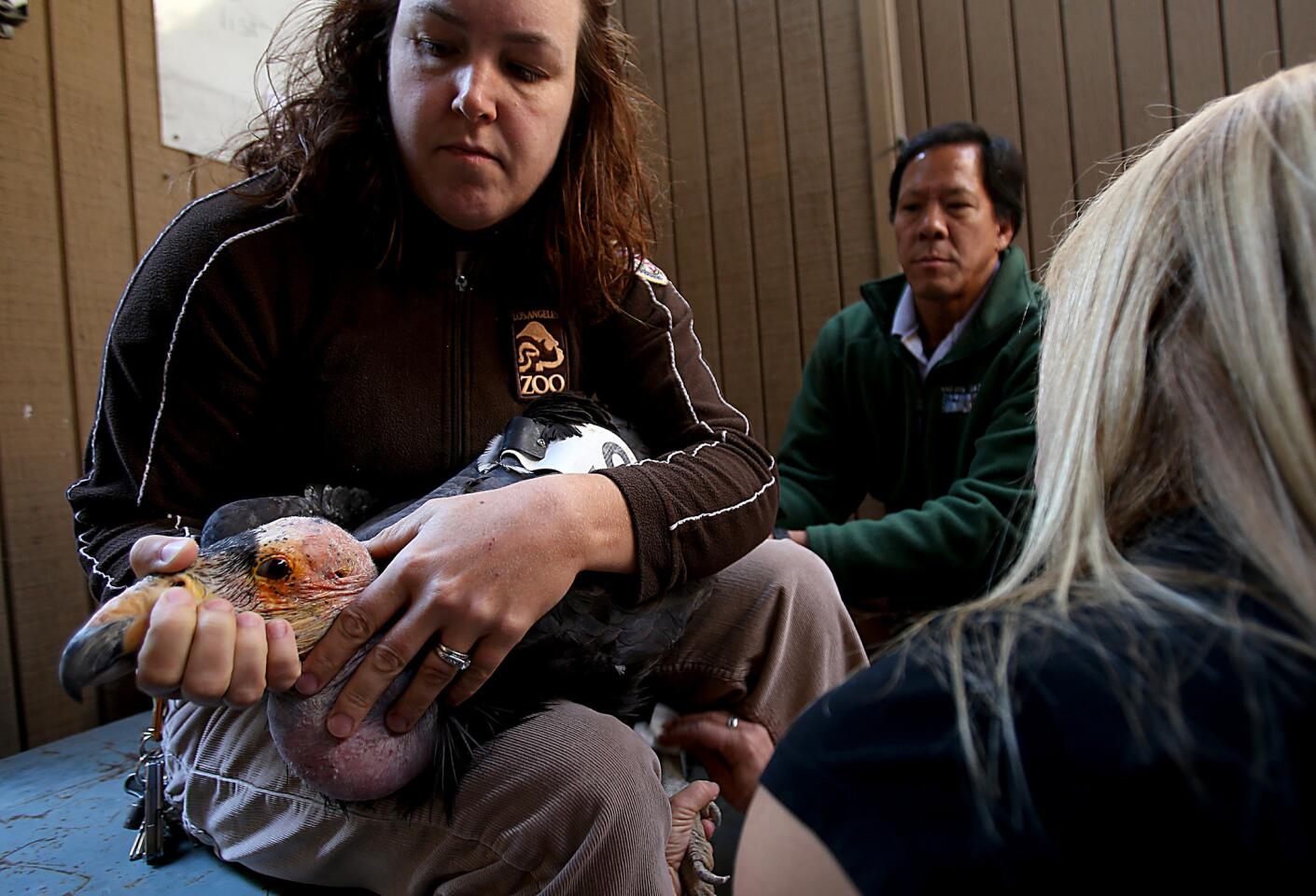
A record 21 California condors have been treated for lead poisoning this hunting season in California. Zoo veterinarians say three birds were critically sick when they were recently trapped and brought to Los Angeles. (Luis Sinco / Los Angeles Times)
Advertisement
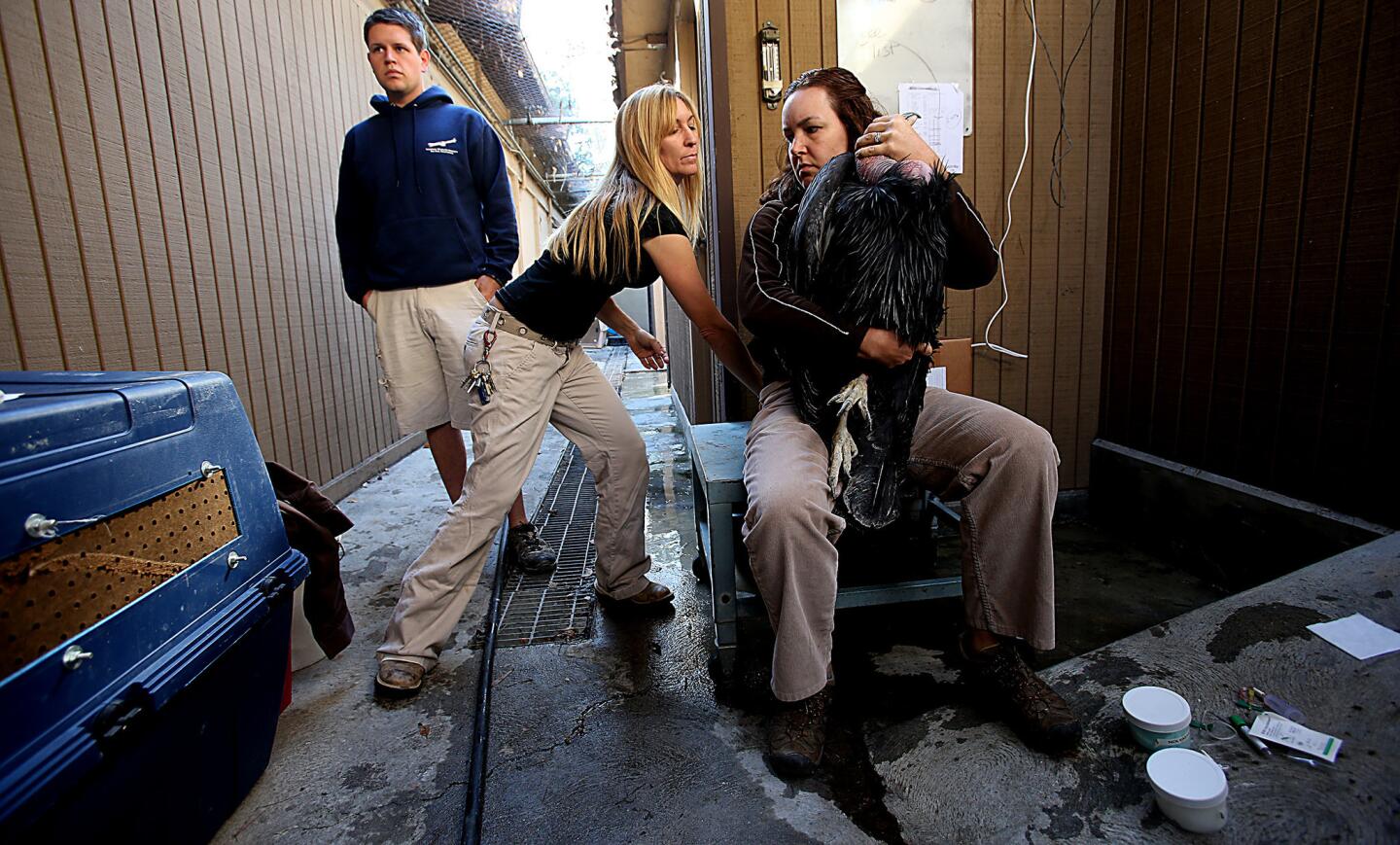
L.A. Zoo condor keeper Debbie Ciani restrains California condor No. 462 as Chandra David finishes administering tests to determine the animal’s health. (Luis Sinco / Los Angeles Times)
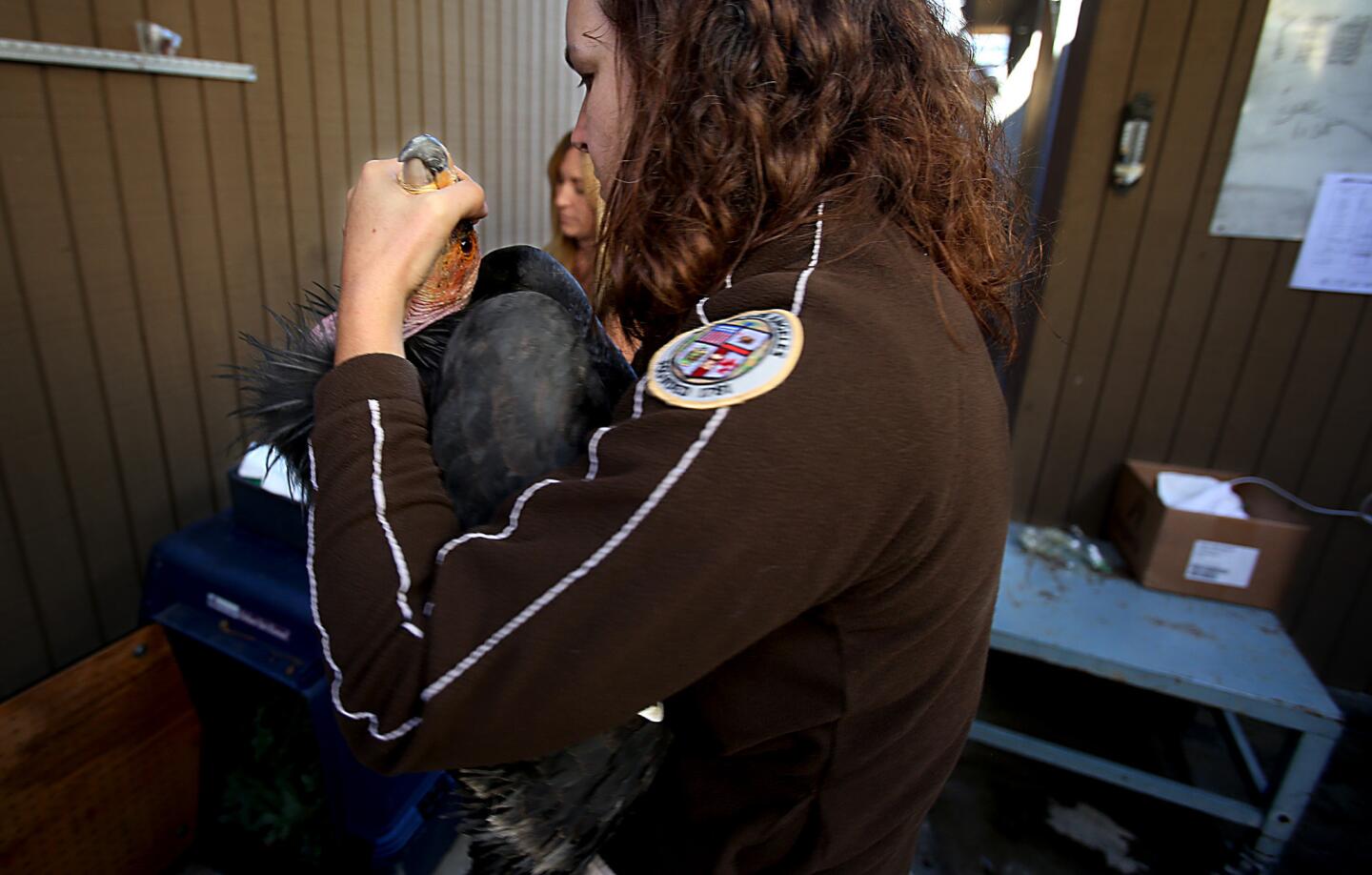
Debbie Ciani prepares to put a California condor into a portable cage after tests were conducted to determine the animal’s health. (Luis Sinco / Los Angeles Times)
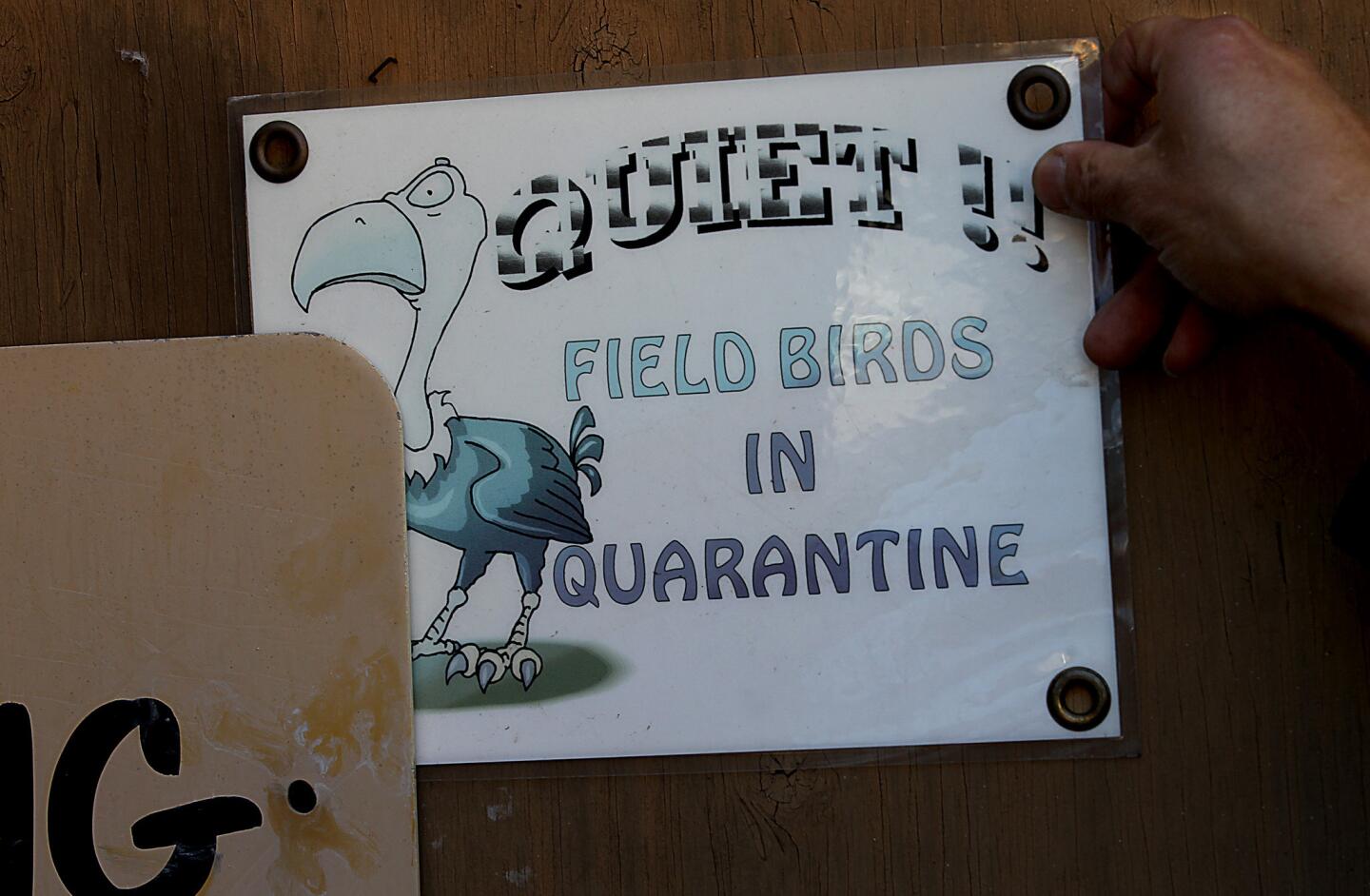
Curtis Eng, chief veterinarian of the L.A. Zoo’s California Condor Program, hangs a sign informing visitors to be unobtrusive while viewing a condor enclosure. (Luis Sinco / Los Angeles Times)
